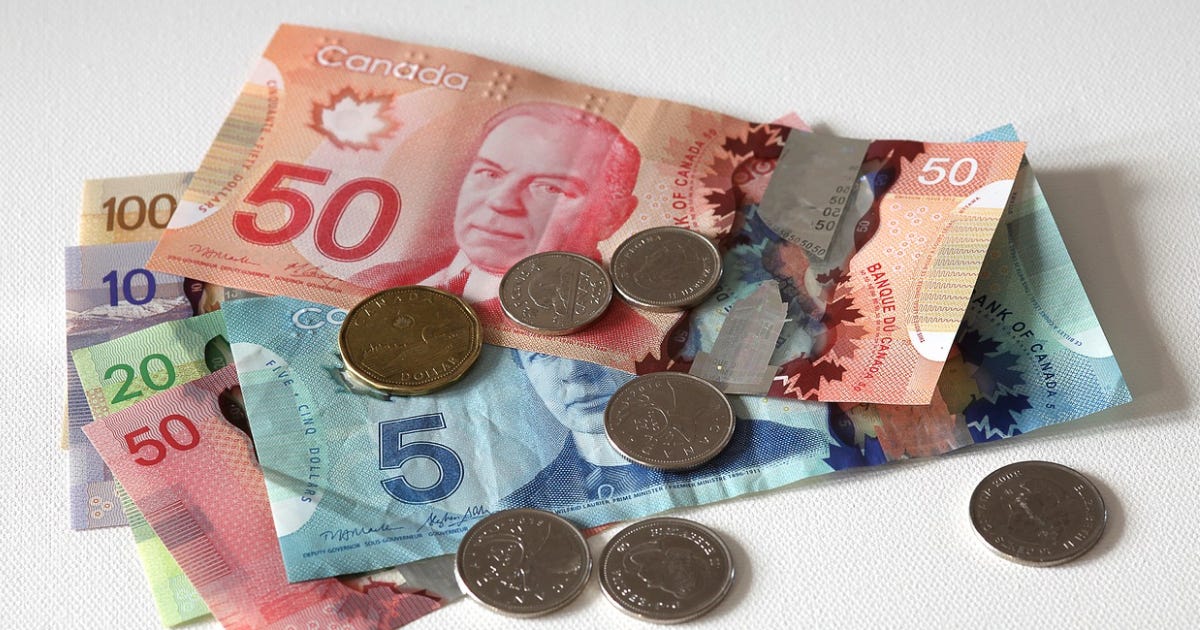OP-ED: Moral Decline: The Path to Currency Collapse in Canada
Jonathan Wellum writes, "Moral decline undermines economies – and Canada is not immune."
By Jonathan Wellum
Moral decline undermines economies – and Canada is not immune.
For centuries, central banks all over the world have been printing money, devaluing it, and fueling inflation to prop up fiscally reckless governments. Such policies stem from the elite’s greed and thirst for power, enriching themselves at the expense of the middle class and working poor.
History shows that moral decay leads to excessive spending, money printing, inflation, and currency collapse.
Fiat currency, unbacked by assets like gold, relies on trust in institutions and societal integrity. Ethical values—honesty, fairness, accountability—support healthy economic transactions, where contracts are honored, debts are paid, and institutions are transparent. But when these values erode, corruption often takes hold. Leaders prioritizing personal gain misuse resources, raise taxes, overregulate, and let infrastructure crumble, eroding trust. This cycle reduces investment, erodes savings, and devalues currency domestically and globally.
A currency’s value reflects a society’s moral strength—when ethics fail, the currency collapses with the culture.
History illustrates this pattern.
For instance, the book of Isaiah condemns Judah’s moral decay, a warning that resonates with Western nations today. God, through Isaiah, calls out a “sinful nation, a people laden with iniquity” (Isaiah 1:4), describing a society so corrupt it debases its own currency: “Your silver has become dross, your choice wine diluted with water” (Isaiah 1:22).
The Roman Empire’s fall is a prime example. By the 2nd century AD, moral decay—elite extravagance, corruption, and vanishing civic virtues like duty—weakened Rome. Emperors debased the denarius to fund lavish spending and wars, a symptom of a morally bankrupt society. Hyperinflation destroyed the denarius’ value, destabilizing the economy as trust in institutions faded.
Similarly, before the French Revolution, the aristocracy’s wealth and neglect of the poor, coupled with the monarchy’s reckless spending and corrupt taxes, reflected moral failure. The collapse of the assignat, France’s paper currency (1789–1796), from overprinting followed a society that abandoned truth and accountability.
Since World War II, the U.S. dollar–the world’s reserve currency–has lost nearly 99% of its value. In 1971, President Nixon ended the dollar’s gold standard link, when gold was $35 per ounce under the Bretton Woods system. By July 2025, gold had soared to $3,350 per ounce, a 95-fold increase, reflecting the dollar’s plummeting purchasing power. This stems from loose monetary policies and ballooning deficits. The U.S. national debt has surged from $398 billion in 1971 to over $37 trillion today, a 92-fold rise. The Federal Reserve’s M1 money supply has grown 81-fold, from $228 billion to over $18.5 trillion.
Moral decline undermines economies in several ways.
First, corruption and favoritism destroy institutional trust. Leaders printing money to cover deficits devalue currency, raise inflation, and harm citizens. Zimbabwe’s hyperinflation in the 2000s, peaking at 89.7 sextillion percent, resulted from Mugabe’s corrupt regime and failed land reforms that undermined property rights and agriculture. Moral failure caused the Zimbabwean dollar’s collapse.
Second, a culture embracing dishonesty and short-term thinking erodes economic trust. Unreliable contracts and debts lead to hoarding, speculation, or flight to stable currencies. Argentina’s crises, with inflation exceeding 140% by 2023, stem from decades of corruption and poor policies eroding faith in the peso. President Javier Milei is now working to reverse these policies with balanced budgets and stable monetary measures.
Third, losing virtues like patience and fiscal responsibility leads to unsustainable policies. The 2008 financial crisis, driven by greed and reckless lending, shows how ethical decay precipitates economic turmoil.
To prevent or recover from currency collapse, societies must rebuild their moral foundation, rooted in the belief that life is under God’s authority, not the State’s. Institutions must embody transparency, accountability, and fairness, guided by justice, aligning government, economy, and community with truth. Leaders must prioritize long-term stability over short-term gain, serving citizens with integrity. Education and civic engagement, grounded in truth, must empower citizens to uphold God’s order. A currency’s value reflects a culture’s values—only by renewing society based on truth can a nation restore economic strength.
Currency collapse is not random but the result of moral decline.
From ancient Judah to modern nations, history shows that corruption, dishonesty, and short-term thinking lead to economic ruin. A morally strong society sustains a stable currency and thriving economy.
The warning for Canada and the West is clear: ignore history – and God’s truth – at your peril.
Jonathan Wellum is the President and CEO of ROCKLINC Investment Partners Inc., Canada’s premier conservative asset manager. We can help you stop your investments from fuelling the globalists. Contact us today.
ROCKLINC is a proud sponsor of Juno News. The views expressed are that of the author, and not Juno News.



The article is brilliant. Our leaders have thrown fiscal prudence to the wind for electoral gain. They are not guided by the public interest but personal gain. As for the media, they accuse politicians who seek to buck this trend as cruel and austere penny-pinchers.
Thanks for this piece. A worthwhile read. Interesting idea that currency is a reflection of our culture and character. It reminds me that a problem with politics is that it incents promoting what's popular over what's principled. It's easier to offer things than it is to encourage responsibility.